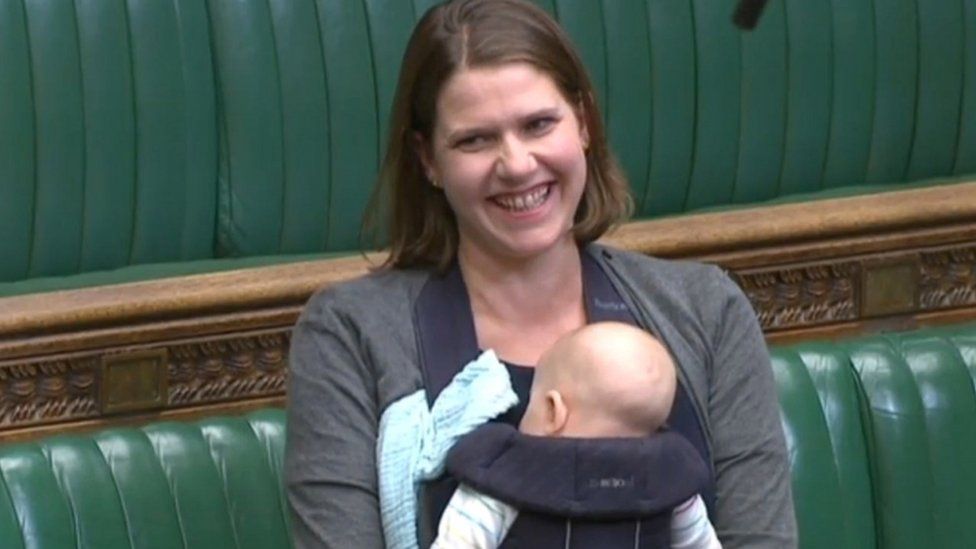Jo Swinson: Taking baby into Commons 'felt natural'
- Published

An MP who became the first to take her baby into a Commons debate has said she hopes it will signal a step forward in modernising parliament.
Liberal Democrat deputy leader Jo Swinson appeared in the chamber with Gabriel on Thursday during a discussion about proxy voting.
Speaking to BBC Scotland on Friday morning, she said it had felt like the "natural thing to do".
Ms Swinson gave birth to Gabriel, her second child, on 29 June.
She did not have her 11-week-old son with her when she spoke early on in the debate, before she left the chamber to go and feed Gabriel, who then fell asleep on her in a baby carrier.
By convention, Ms Swinson was expected to return to the chamber to listen to the closing speeches in the debate.
The East Dunbartonshire MP said: "The options were: wake him up and hand him to somebody else for 20 minutes, or go in and sit down, do no harm, and he stayed asleep for most of it.
"I think it's a step forward for modernising parliament and for sending a message that it really needs to be possible for parents to be able to combine their responsibilities for their children with their working lives, and all too often that is made too difficult.
"That won't always mean taking your child to work, but in the case of very small babies, for people who are working at that stage then that can be just one of the ways in which workplaces can modernise and there could be flexibility in order to make it possible."
Earlier in the summer Ms Swinson was "furious" when Tory chairman Brandon Lewis - who she was paired with while on parental leave, meaning neither would take part in Commons voting - joined a crunch Brexit vote in July.
She said it would not be difficult to introduce a proxy voting system instead, which would allow someone else to vote on behalf of an MP who is on maternity or paternity leave.
Ms Swinson added: "We should take those opportunities to just make it a little bit more possible, because we are talking about parliament that sets the rules for the rest of the country and also therefore can set the tone.
"When we've got 54,000 women a year losing their jobs because of pregnancy discrimination it is particularly important that we get these kind of things right because we do need to, not just in parliament but right across the country, modernise workplaces so that it is more possible for parents to balance their responsibilities."
- Published13 September 2018